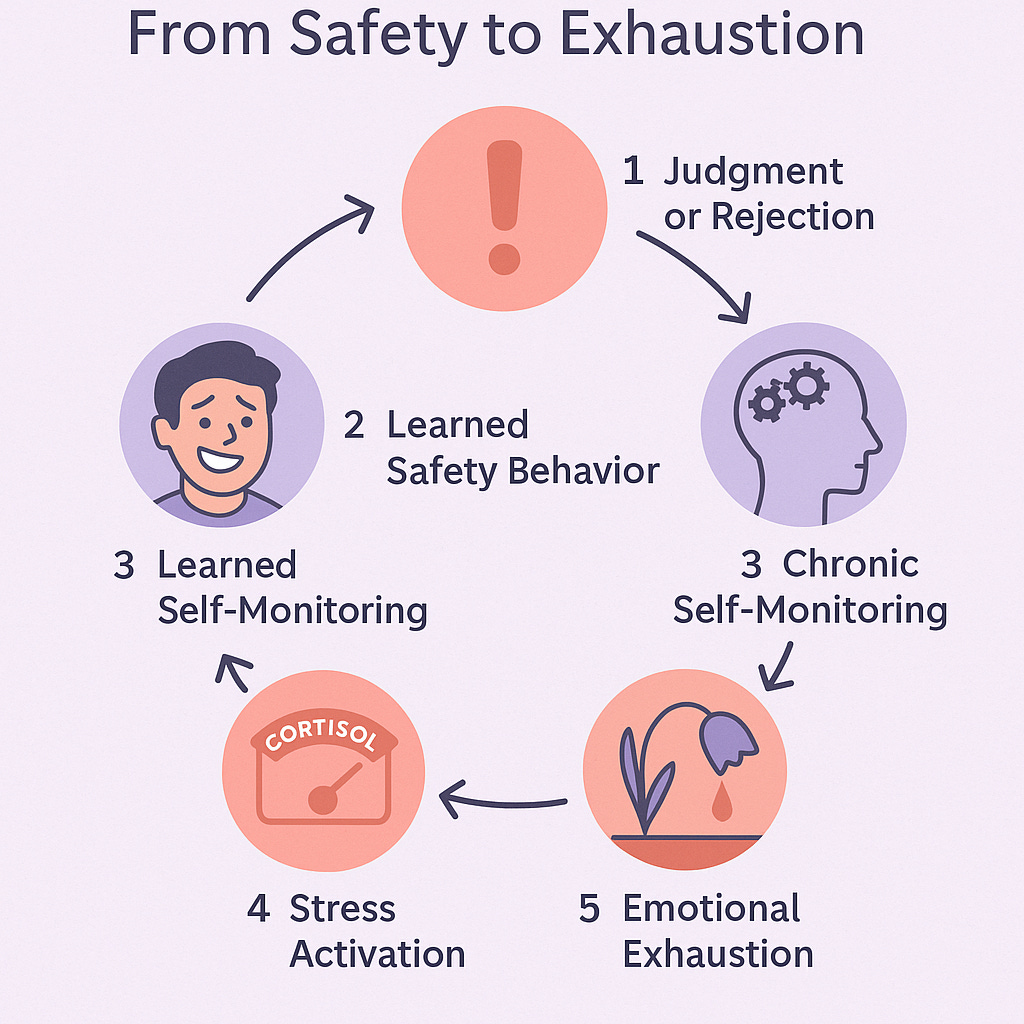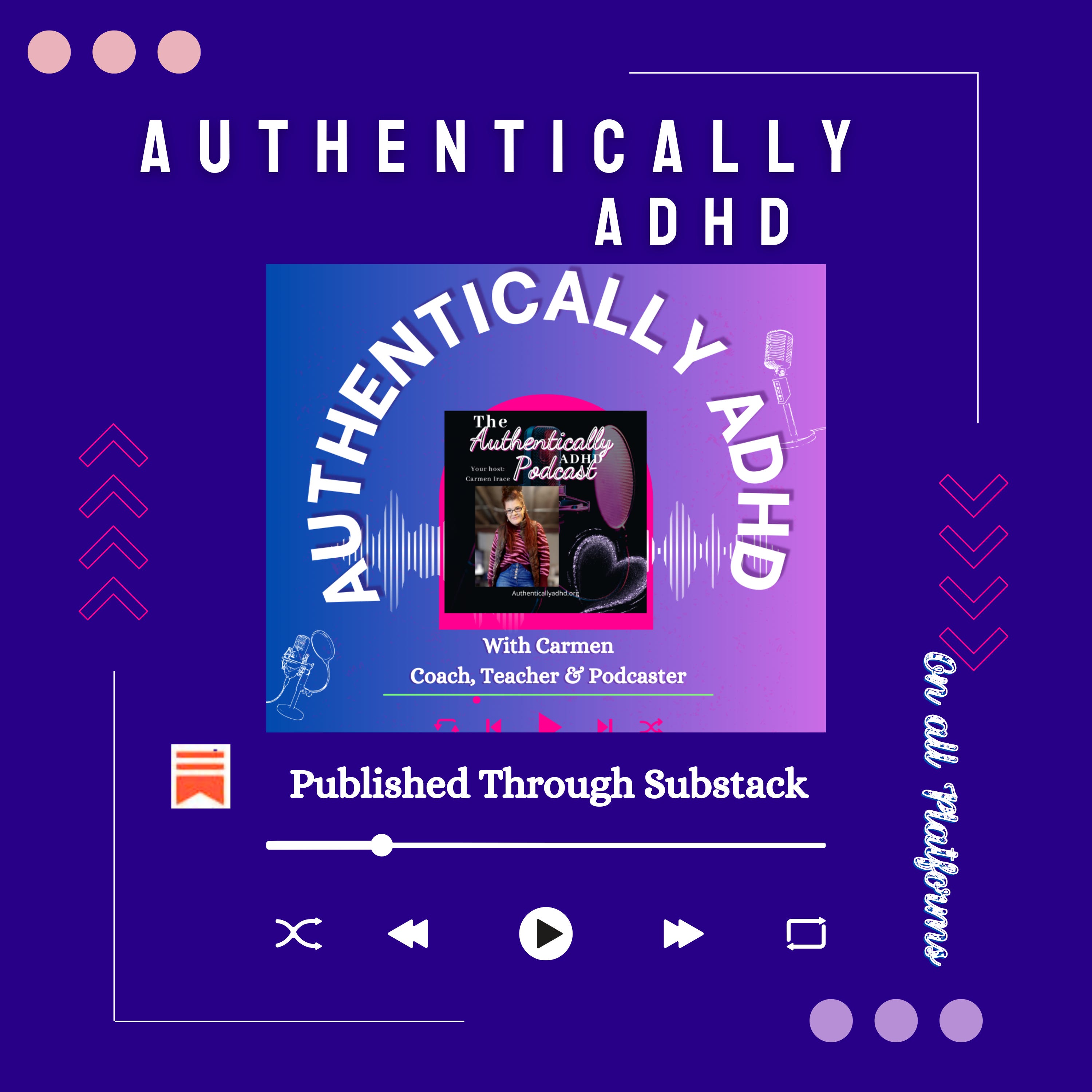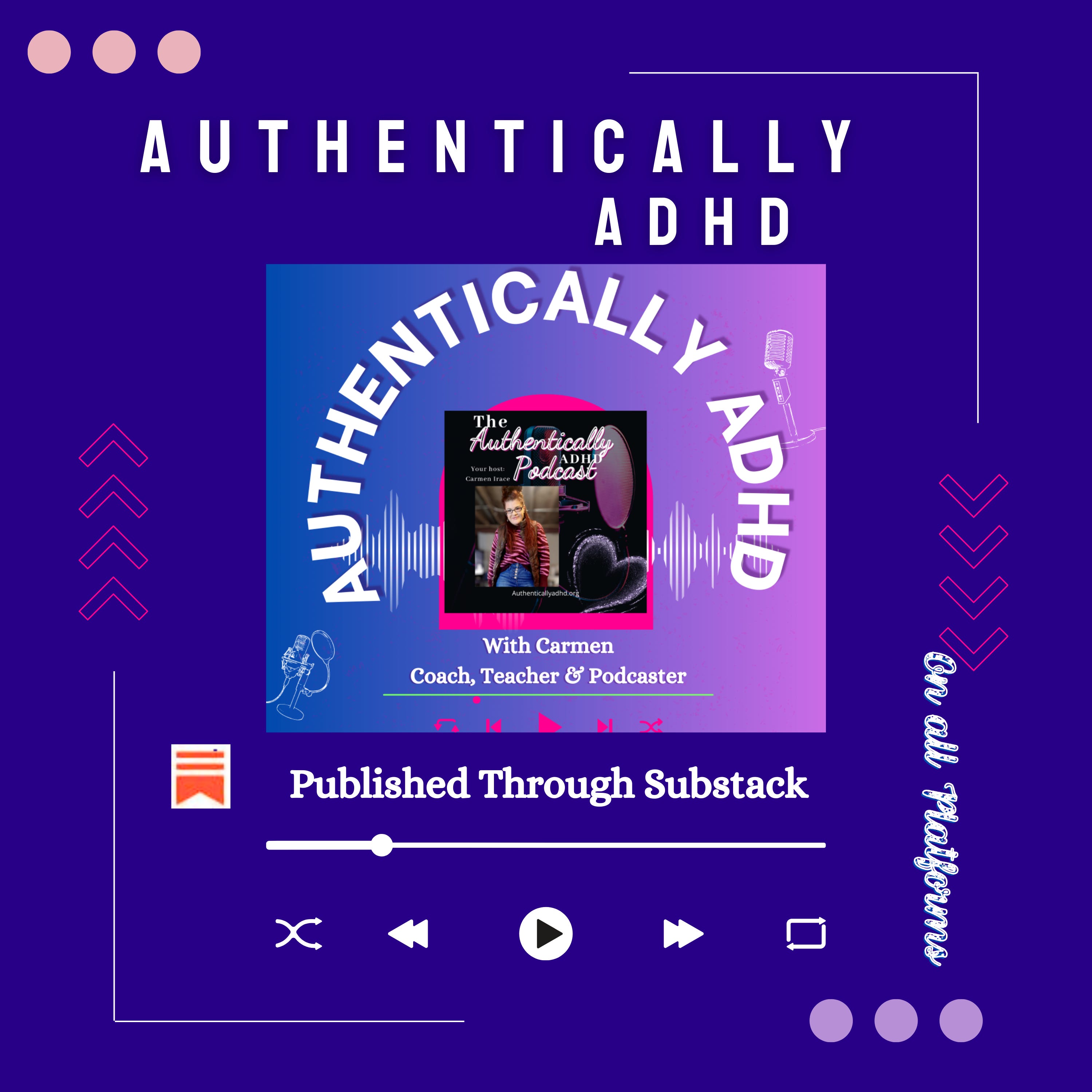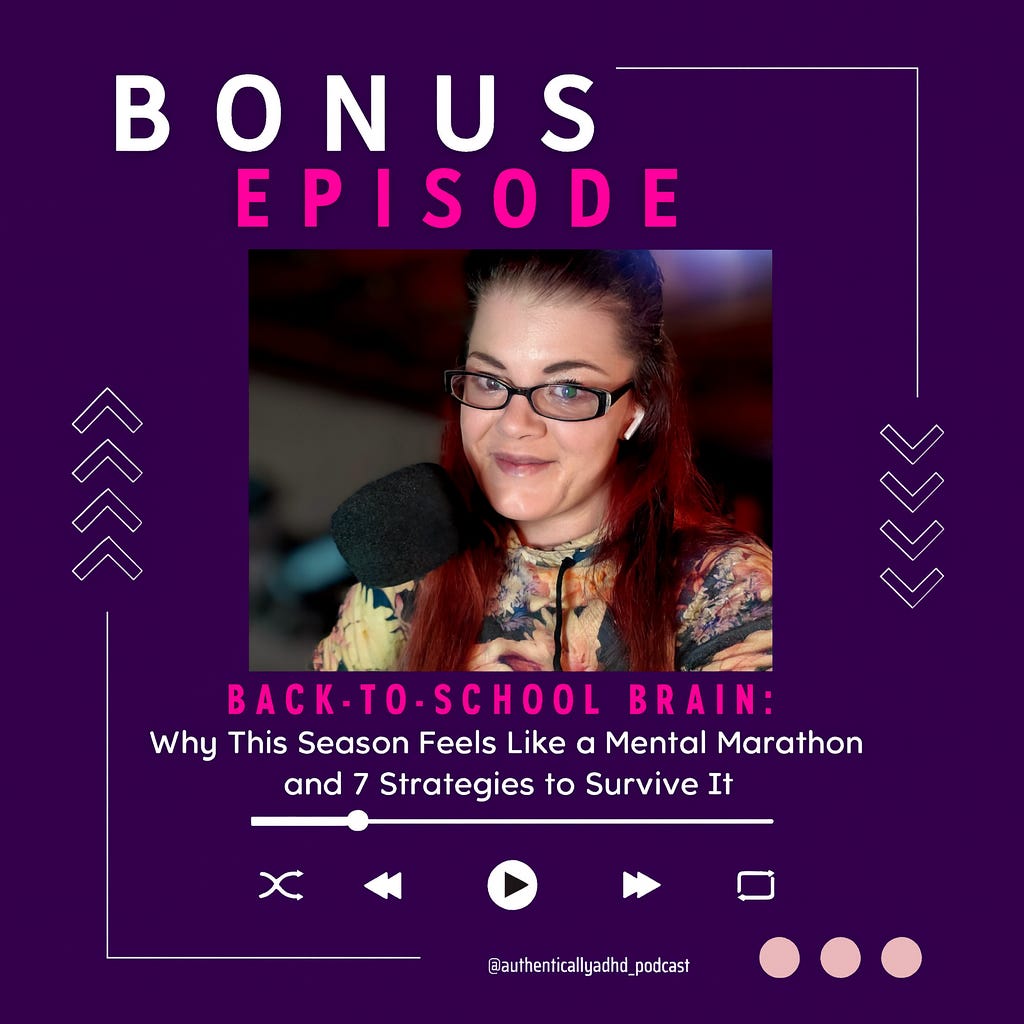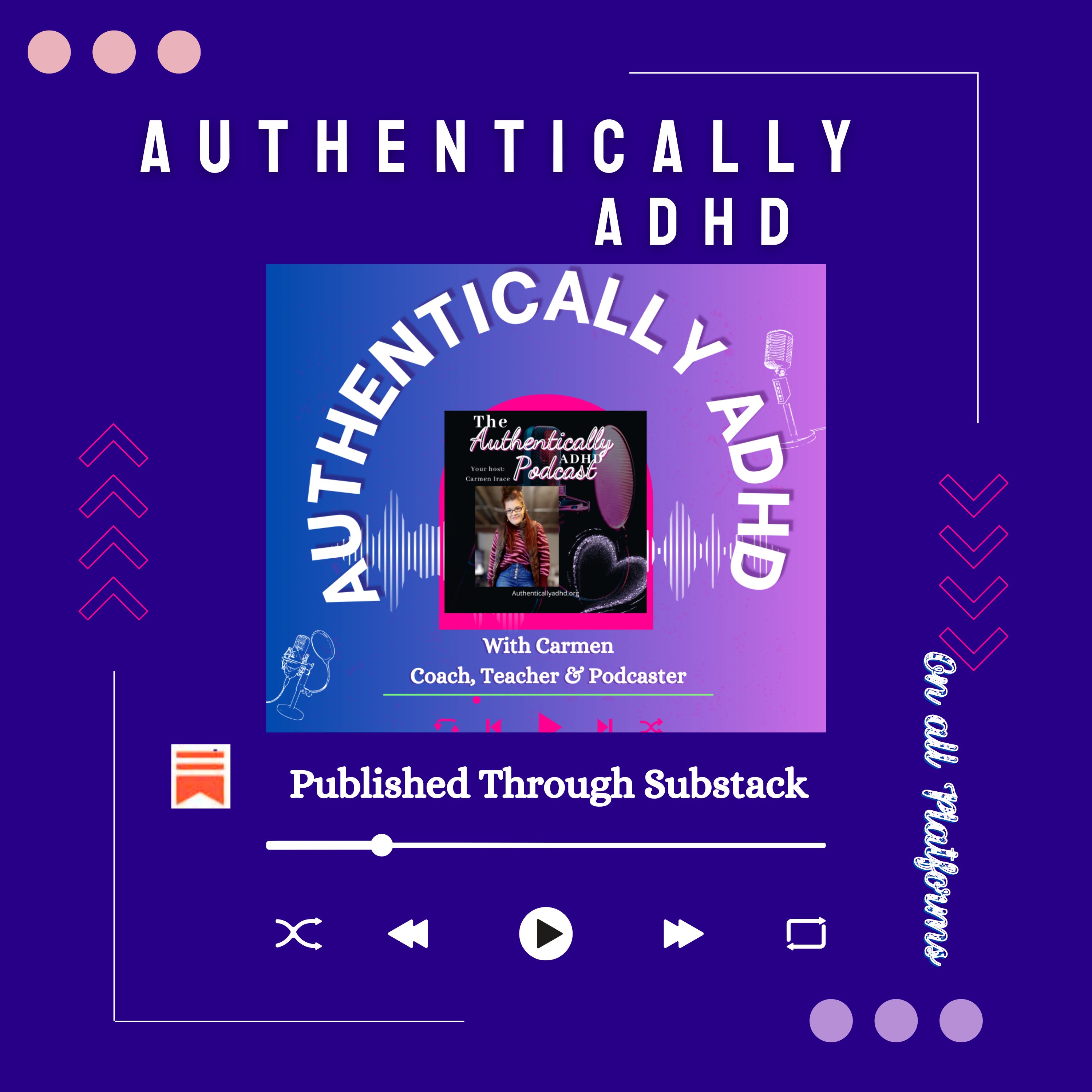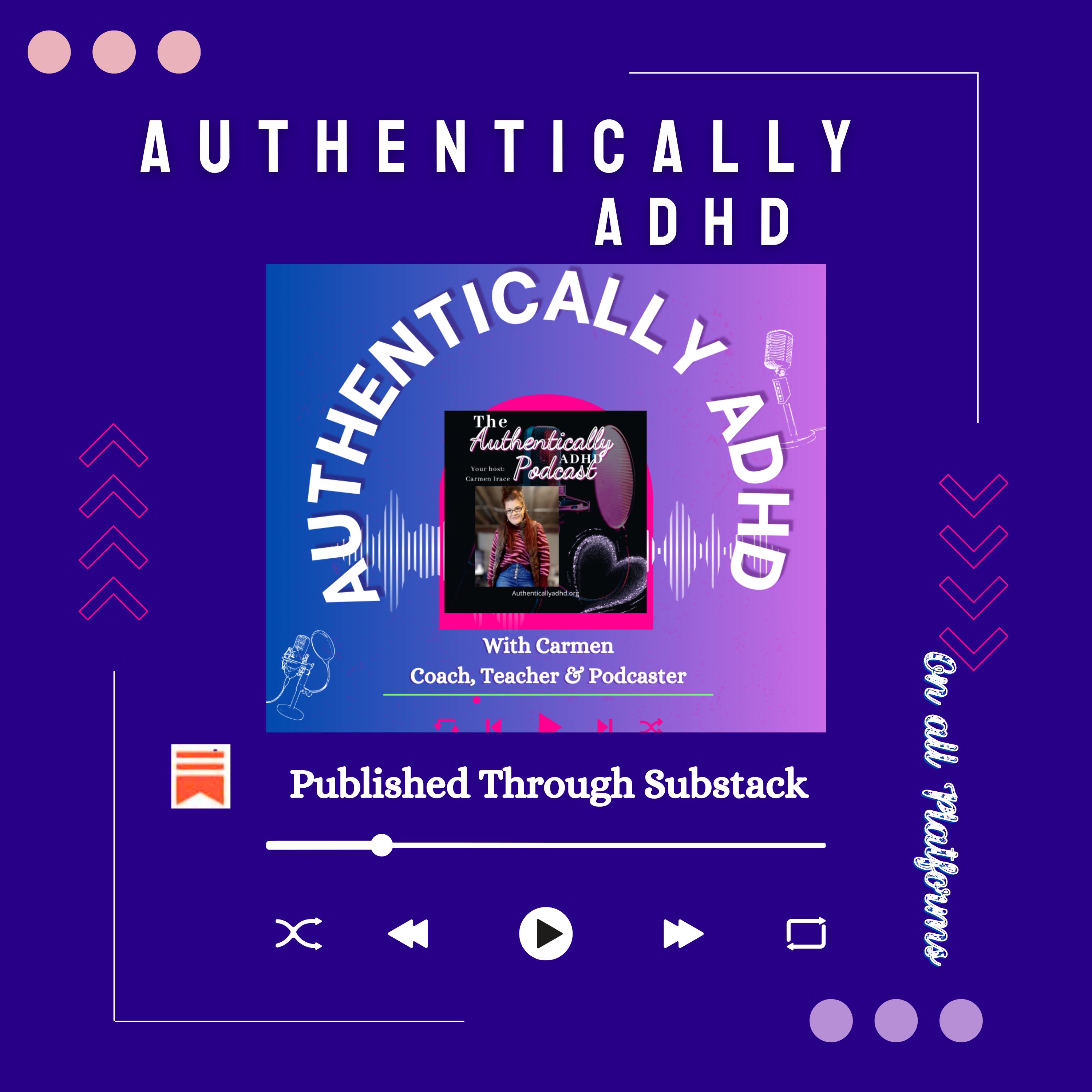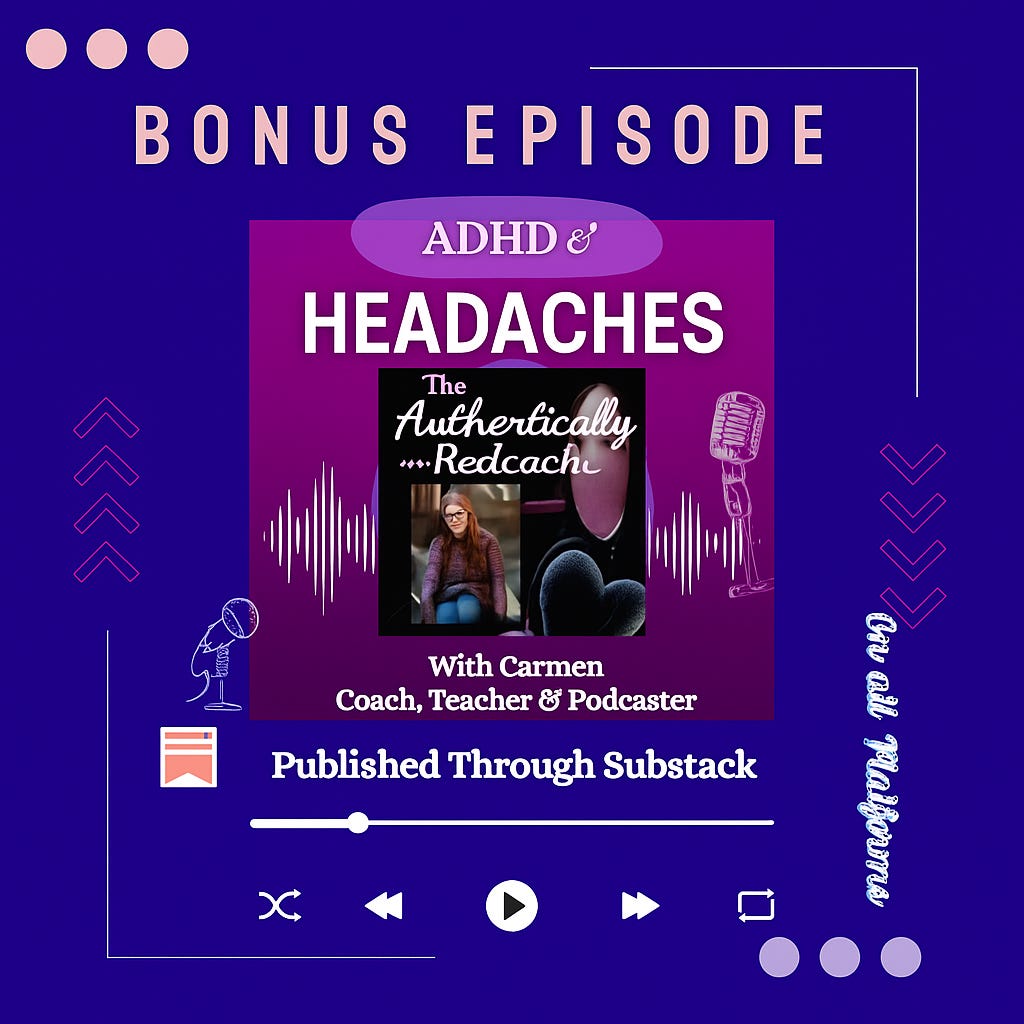Authentically ADHD – ADHD, Alexithymia, and Anhedonia: Understanding Emotions and Motivation
Description
Authentically ADHD – ADHD, Alexithymia, and Anhedonia: Understanding Emotions and Motivation
Hello and welcome to Authentically ADHD! I’m Carmen, your host. Today, we’re diving into a topic that might hit very close to home for a lot of us: the confusing intersection of ADHD, alexithymia, and anhedonia. Now, those are some big, clinical-sounding words – but don’t worry. We’re going to break them down in plain language and talk about how they can overlap in real life. If you’ve ever thought, “Why can’t I figure out what I’m feeling?” or “Why don’t I enjoy things the way I used to?”, or if you find yourself emotionally drained after a long day of masking your ADHD traits, then this episode is for you.
In this 25–30 minute journey, we’ll mix a bit of neuroscience (in a friendly, non-intimidating way) with personal storytelling. I’ll share some of my own experiences, and we’ll explore what research says about why these experiences happen. By the end, you’ll have a clearer understanding of what ADHD, alexithymia, and anhedonia really mean, why they often go hand-in-hand (especially in neurodivergent folks like us), and what we can do to cope and thrive. We’ll also bust some common myths and misunderstandings – including why these issues often get overlooked or dismissed, especially in women and people diagnosed later in life. And as always, we’ll wrap up with strategies and a big dose of validation and hope. So, get comfy (or start that task you’ve been putting off and take us along!), and let’s get started.
Understanding ADHD, Alexithymia, and Anhedonia
Before we delve into how these things intersect, let’s clearly define each of these terms. They each describe a different piece of the puzzle of our emotional and mental life. Understanding what they are will help us see how they connect. In a nutshell:
ADHD (Attention-Deficit/Hyperactivity Disorder): ADHD is a neurodevelopmental disorder characterized by persistent patterns of inattention (difficulty focusing, forgetfulness), hyperactivity (restlessness, fidgeting), and impulsivity (acting without thinking) that interfere with daily functioningneurolaunch.com. In adults, ADHD can look like struggling to stay organized, constantly losing your keys, jumping from one idea to another, or even feeling emotionally impulsive. It’s not just “kids being hyper” – it’s a lifelong brain-based condition affecting how we concentrate, manage time, and regulate behavior and emotions.
Alexithymia: Alexithymia is not a disorder but a personality trait or profile, often described as having difficulty identifying and describing your emotionsneurodivergentinsights.com. The word literally means “without words for emotion.” If you have alexithymia, you might feel strong emotions physically (like a racing heart or a knot in your stomach) but struggle to pinpoint what the emotion is (is it anxiety? anger? hunger?) and find words to express it. Alexithymia exists on a spectrum – some people have mild trouble with emotions, others have it to a more severe degreeneurodivergentinsights.com. It frequently co-occurs with neurodivergent conditions; in fact, research suggests that a significant subset of people with ADHD (estimates range from about 20% to over 40%) also have alexithymianeurodivergentinsights.combhcsmt.com. So, if you have ADHD and you’ve always felt “out of touch” with your emotions, alexithymia might be a concept that resonates with you.
Anhedonia: Anhedonia means an inability or reduced ability to experience pleasure. It’s like the volume knob for enjoyment is turned way down. People with anhedonia struggle to feel joy or interest in activities that used to be fun or rewardingneurolaunch.com. This term is often discussed in the context of depression (since losing pleasure is a core symptom of depressive episodes), but it’s not exclusive to depression. As we’ll explore, anhedonia can also show up in ADHD. If you find that hobbies, socializing, or accomplishments don’t light you up the way they do for others (or the way they once did for you), anhedonia could be at play. It can feel like emotional flatness or being chronically “uninspired” – you want to want things, but the feeling isn’t there.
Each of these three – ADHD, alexithymia, and anhedonia – is distinct. ADHD is an officially recognized neurodevelopmental condition affecting attention and self-regulation. Alexithymia is a descriptive trait about emotional awareness. Anhedonia is a symptom state of not experiencing pleasure. Yet, despite their differences, these experiences often overlap and tangle together, especially for neurodivergent individuals. When someone has ADHD, they’re more likely to also experience traits of alexithymianeurodivergentinsights.com, and they may be more prone to anhedonia or “low hedonic tone” (low baseline ability to feel reward) than the general populationen.wikipedia.org. Why is that? Let’s dig into the brain science to find out.
The Neuroscience Behind the Overlap
So, why do ADHD, alexithymia, and anhedonia so often form a trio? To answer that, we need to talk about how our brains process emotions and rewards. Don’t worry – we’ll keep it conversational. Imagine your brain as an orchestra: different sections handle different parts of the music. When everything’s in tune, you get a harmonious experience of life – you feel emotions, you find joy in activities, you focus when you need to. With ADHD, alexithymia, and anhedonia, some sections of the orchestra are either playing off-key or playing too quietly to hear.
One key player here is dopamine, a neurotransmitter often nicknamed the “reward chemical.” Dopamine is heavily involved in motivation, pleasure, and attention – basically the brain’s way of saying “Hey, this is important/fun, focus on this!” In ADHD brains, dopamine signaling doesn’t work typically; it can be underactive or dysregulatedneurolaunch.comneurolaunch.com. Think of it like a weak Wi-Fi signal in the reward circuits of the brain – messages about reward and pleasure just aren’t getting through fast or strong enough. Because of this, everyday tasks might not feel as rewarding to someone with ADHD as they do to someone without ADHD. Science actually shows that ADHD-related dopamine impairments can dysregulate the brain’s reward processing and lead to anhedonia (difficulty feeling pleasure) in some individualsen.wikipedia.org. In other words, the same brain chemistry quirk that makes it hard to concentrate can also turn down the volume on enjoyment and motivation.
Now, what about alexithymia? While dopamine is more about the reward system, alexithymia has a lot to do with our brain’s emotional awareness and interoception (a fancy word for sensing the internal state of your body). Some researchers believe alexithymia is essentially a problem with how the brain’s insula and related regions process internal signalsbhcsmt.com. The insula is like the brain’s monitor for bodily and emotional sensations – it helps you notice a fast heartbeat and connect it to “I feel anxious,” for example. In alexithymia, that monitoring system might be glitchy. Emotions are still happening under the hood (we still produce the bodily reactions and basic emotional responses), but the translation of those signals into conscious awareness and labels doesn’t work well. It’s as if the brain doesn’t label the emotions correctly or at all. This is why someone with alexithymia can seem calm or unaffected externally while internally their heart is pounding – they truly might not recognize what they’re feeling, or they might just register a vague discomfort without an emotional label. Interestingly, alexithymia has been called a “disconnect between the emotional and thinking parts of the brain.” The emotional signals are there, but the cortex (thinking brain) can’t interpret them properly.
So, how do these tie together? ADHD and alexithymia share some overlapping brain differences. For one, both are linked to difficulties in emotional regulation. ADHD isn’t just about attention – many experts now recognize that emotional impulsivity and difficulty regulating feelings are core aspects of ADHD for many peopleneurodivergentinsights.com. If you have ADHD, you might feel things more intensely but also more fleetingly, and you can struggle to manage those feelings (for example, quick frustration, or being easily hurt by criticism, then rapidly switching to another mood). Now add alexithymia into the mix: you have big emotions (possibly ADHD-related) but poor insight into them. That’s a challenging combo! In fact, having alexithymia can make it even harder for ADHDers to understand and regulate their emotional ups and downsneurodivergentinsights.comneurodivergentinsights.com. It’s like trying to drive a car with a super sensitive gas pedal (ADHD emotions) but a foggy windshield (alexithymia blocking your view of what’s happening inside you).
Neuroscience also hints at other overlaps. Both ADHD and alexithymia have been associated with atypical functioning in the prefrontal cortex (the brain’s executive control center) and in connections between the cortex and deeper emotional brain regions. ADHD’s executive function challenges mean the brain can struggle to pause and reflect – which might also affect the ability to reflect on and name emotions. If you’re constantly chasing the next stimulus or fighting to focus, you might not have the bandwidth to analyze “What am I feeling right now?” Similarly, alexithymia may involve less activation or connectivity in areas that integrate bodily states into emotional awareness (like the anterior insula, for those who love brain specifics). There’s even some evidence pointing to dopamine’s role in emotional awareness: conditions with dopamine dysfunction (like Parkinson’s disease and yes, ADHD) show high rates of alexithymiabhcsmt.com. Fascinatingly, one study found that when ADHD patients


